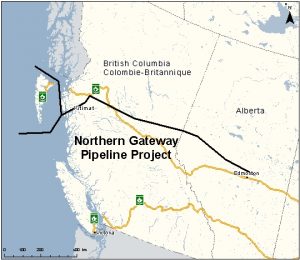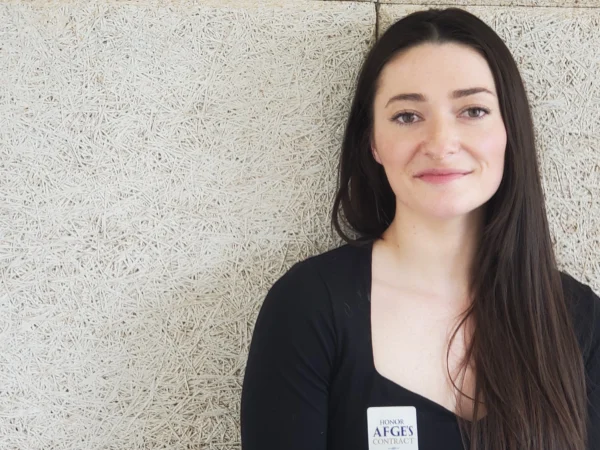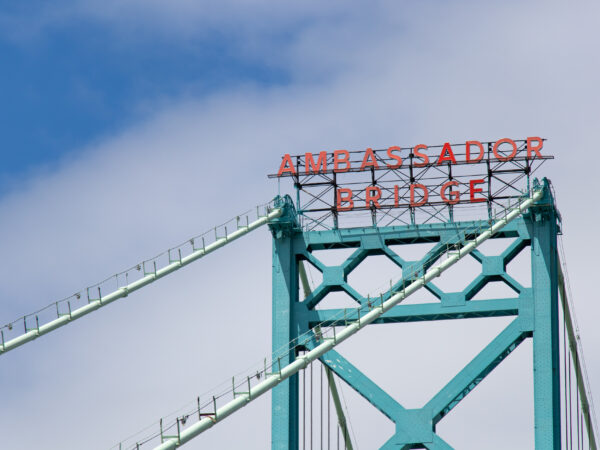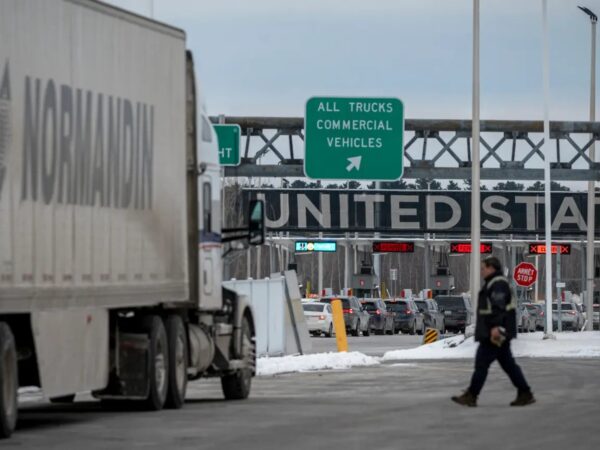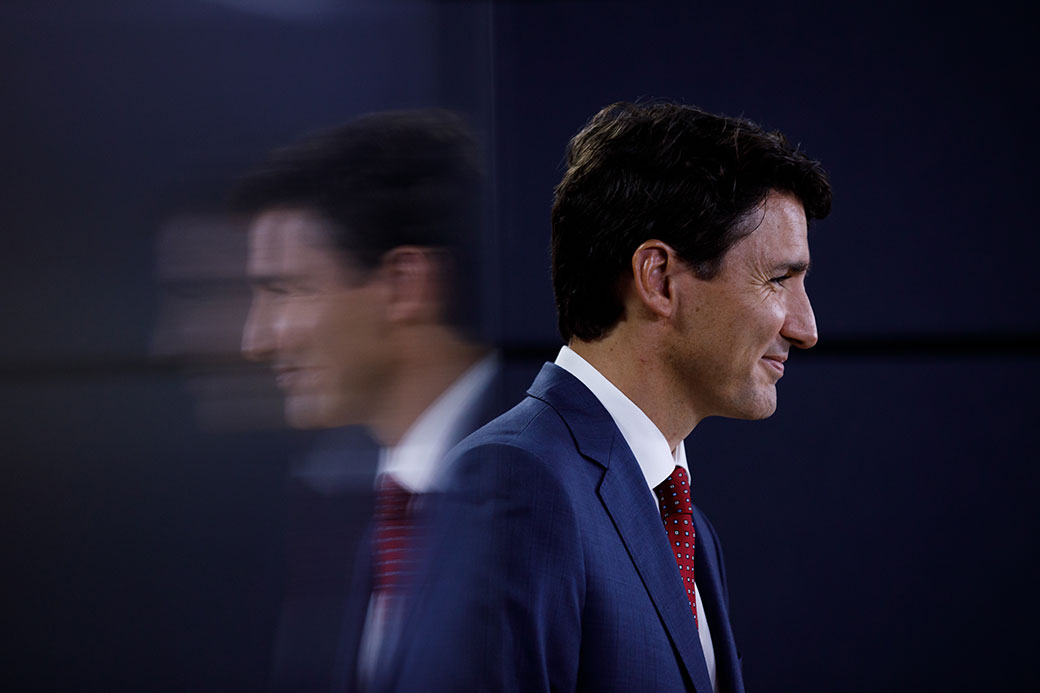
He tells Chicago audience pipeline decisions require balancing priorities
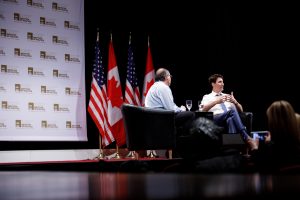
Prime Minister Trudeau takes part in an arm chair discussion with David Axelrod at the University of Chicago, courtesy of flickr.com
Canadian Prime Minister Justin Trudeau told a packed house in Chicago last week that to build a strong economy for the future, “you have to protect the environment.”
Trudeau, who leads Canada’s center-left Liberal Party, said the Right and Left wings of the political spectrum tend to see it as the economy or the environment, but not both.
Trudeau was defending decisions to approve oil pipelines in energy-rich Canada.
The decisions angered supporters who helped elect him by a wide margin in 2015. He said to govern effectively, he has to balance priorities, and that includes making tough energy and environment decisions that won’t always please supporters.
Pipelines are a hot-button issue in the Great Lakes region, best illustrated by the Canadian company Enbridge’s aged Line 5 which runs under the Straits of Mackinac. Anti-pipeline activists say the straits are the worst possible place for a pipeline rupture and want Line 5 deactivated.
An Enbridge pipeline that ruptured near Kalamazoo, Michigan in 2010 resulted in the largest inland oil spill in U.S. history.
The Trudeau administration denied Enbridge’s Northern Gateway pipeline request that could have threatened the Great Bear Rainforest north of Vancouver, British Columbia. Enbridge received approval to replace the existing Line 3 that will transport oil to Superior, Wis.
Trudeau said he hopes pipeline activists will take the long view and see that environment policies anchored by his leadership on climate change are taking Canada in the right direction.
Highlighting his environment and climate strategy, Trudeau told the audience that “for the first time in Canada’s history we were able to put together a concrete plan, not just targets, to reach our climate emission reductions.”
The plan involves setting a national price on carbon – commonly known as a carbon tax. Revenue collected by the federal government would be returned to the provinces.
Trudeau said when it comes to climate issues, “Canadians see Canada as a climate leader.”
Spotlight on plastic pollution
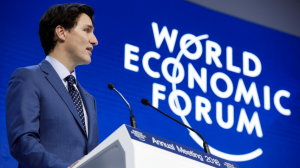
Prime Minister keynote speech at the World Economic Forum 2018, courtesy of pm.gc.ca
Canada has the presidency of the World Economic Forum (G7) for 2018, and Trudeau put a spotlight on plastic pollution in oceans when the group recently met in Davos, Switzerland.
It’s estimated that eight million tons of plastics are discharged to the world’s oceans each year.
“We know that more work needs to be done and that is why Oceans will be a central focus of Canada’s 2018 G7 Presidency,” Environment Canada spokesperson Marie-Pascal Des Rosiers told Great Lakes Now.
Environment Canada did not respond by deadline to a question about plastic pollution in the Great Lakes. An estimated 23 million pounds of plastic ends up in the lakes annually.
The Great Lakes are a shared responsibility between the U.S. and Canada and in December, Environment Minister Catherine McKenna announced a $45 million investment in Great Lakes protections.
NAFTA tension
Trudeau spoke at length on the North American Free Trade Agreement (NAFTA) which is currently being re-negotiated between the U.S., Canada and Mexico. The Trump administration has taken a hard stance on NAFTA, questioning whether it’s a good deal for Americans.
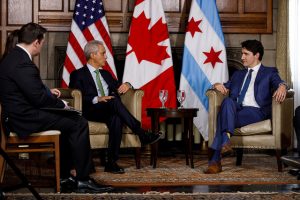
Prime Minister Trudeau meets with Mayor Rahm Emanuel at the University of Chicago, courtesy of flickr.com
Trudeau highlighted Canada’s historical roots as a trading country and vigorously defended the need for an equitable NAFTA deal. He said “there is a path to a win, win, win” and that Canada “will continue to engage.”
Trudeau noted that Canada’s NAFTA position includes protection for the environment.
But he said Canada “will not be pushed into accepting any old deal, and no deal might be better than a bad deal.” Trudeau said if the U.S. walks away from NAFTA there will be a negative impact on American workers.
Trudeau declined to answer specific questions about his relationship with President Trump, saying that he tries to find “common ground” with his counterparts around the world.
Since Trudeau took office Canada’s policies on climate change are opposite those of Trump who has taken the U.S. out of the Paris climate accords.
Trudeau said it’s important to understand that the relationship between the U.S. and Canada is much deeper than whoever holds the office of President or Prime Minister.
Trudeau’s appearance was hosted by the University of Chicago’s Institute of Politics. His speech and the following Q&A are here.


